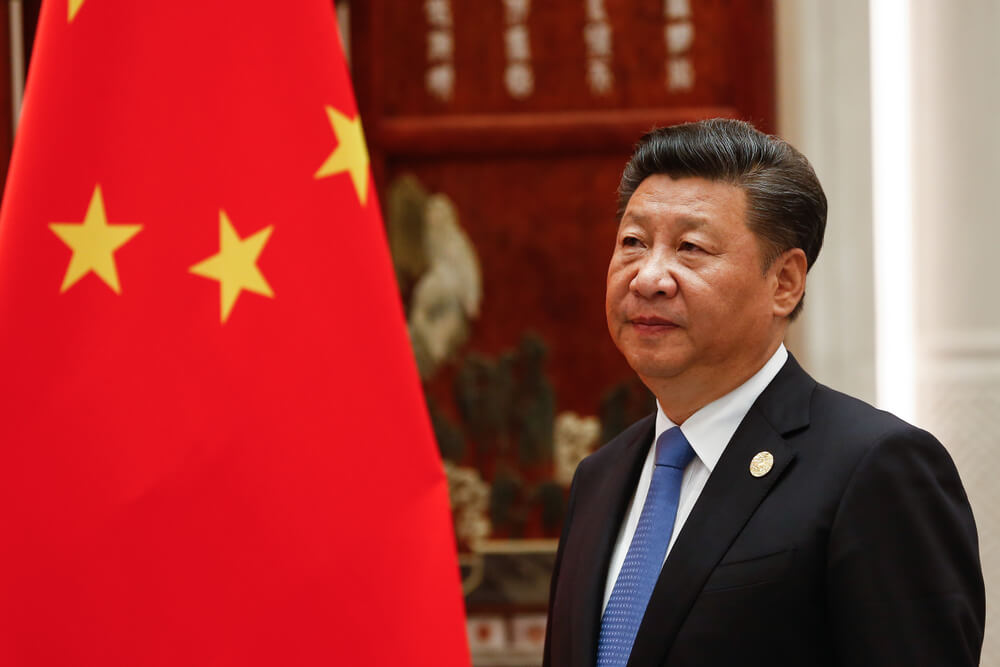The leadership of the Chinese Communist Party has given few hints on how to address the numerous issues in the domestic economy and social sphere.
Instead, the meeting of the Central Committee of the CCP, which is crucial for shaping economic policy in the coming years, clearly set the course for further strengthening the state and its security segment.
The eagerly awaited third plenary session of the Central Committee of the CCP announced the implementation of more than 300 economic and social reforms over the next five years but lacked any details on how the state leadership intends to implement them.
For the economy, the most important meeting of the party leadership confirmed the continuity of Xi Jinping's policy, despite the unenviable economic situation, which requires major changes.
When it comes to market relations, statism will remain pronounced in the coming years, which means that the CCP does not want to undertake economic liberalisation for most of the major economic problems.
High-tech and the green economy
High technology and the green economy are at the forefront of economic development, even though they are controlled by the state, which will primarily allocate resources to these two sectors.
The Chinese leadership sees these sectors as the principal drivers of economic growth, which in turn means an end to the focus on infrastructure that has been the main driver of the economy over the past decade.
On paper, the reforms' goals are very ambitious and focus on improving social protection, including pensions and healthcare, as well as better funding for local governments
On paper, the reforms' goals are very ambitious and focus on improving social protection, including pensions and healthcare, as well as better funding for local governments. The CCP leadership's plan mandates that all reforms be implemented by 2029, marking the 80th anniversary of the founding of the People's Republic of China.
One of the first important measures taken after the meeting was the central bank's decision to lower the market reference rate in order to promote the recovery of the property sector, one of the biggest problems of the Chinese economy.
Without improving the conditions for foreign investment
However, the authorities did not provide much scope for the expectation that conditions would improve for foreign investors, which will only continue the negative trend of their withdrawal over the next five years.
Since the lockdown was lifted, foreign investors have been leaving China and moving their businesses to other countries, and this trend has long been the root cause of China's economic problems.
The high expectations for a rapid economic recovery expressed at the 20th CCP Congress in October 2022 have not materialised
Frederic Neumann, the chief Asia economist at HSBC, considers that all global investors who anticipated a "dramatic change" in the investment environment following the CCP summit could be disappointed.
The high expectations for a rapid economic recovery expressed at the 20th CCP Congress in October 2022 have not materialised. Furthermore, for two years in the post-Covid period, the economy has been growing at a low rate by Chinese standards (around 5%).
At the same time, it is evident that the increased government tightening of economic flows and the pressure on investors with non-economic measures, including the tightening of security regulations against foreigners, are the causes of this.
Policy continuity
The main reason for the slow economic recovery, namely the government's focus on security issues and strengthening central authorities, remains a priority.
The CCP's Central Committee's latest decisions confirm this course and, at the same time, reaffirm Xi Jinping's undisputed leadership role as the policy's protagonist.
 The main reason for the slow economic recovery, namely the government's focus on security issues and strengthening central authorities, remains a priority- Xi Jinping
The main reason for the slow economic recovery, namely the government's focus on security issues and strengthening central authorities, remains a priority- Xi Jinping
The highest body of the Communist Party has adopted a document that is full of continuity with previous economic and security policies, even though these have proven to be wrong in numerous sectors.
But it also speaks of the dominance of Xi Jinping's influence. According to Wen Ti-Sung of the Atlantic Council, when the Central Committee insists on the continuity of previous policies, it is actually talking about the continuity of Xi's rule.
Moreover, this confirmation of unchanged policy and thus the immutability of party and state leadership while the Central Committee's decisions are implemented means the inviolability of Xi Jinping at least until the end of the decade and, at the same time, his new, fourth mandate as head of party and state, which would be an unprecedented case in China.
"It is clearly in line with the political reality in China, where his fourth term is basically guaranteed. It once again proved Xi's the paramount power within the party, which is unquestionable," said Wang Tiancheng, president of the Institute for China's Democratic Transition.